MercoPress. South Atlantic News Agency
Tag: Paraguay
-
Tuesday, May 4th 2010 - 05:37 UTC
Lula da Silva Confirms Paraguay the Promised Power Line and Bridge
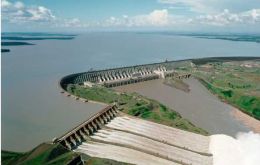
President Lula da Silva reassured Paraguay that Brazil will build the promised 500 kW power transmission line from the Itaipú dam to the capital Asunción, as well as a bridge over the Paraná River shared by both countries.
-
Tuesday, April 27th 2010 - 23:09 UTC
Paraguayan Press Blasts 37 Anniversary of Brazilian “Imperial Itaipú Treaty”

Paraguay’s president Fernando Lugo said he is looking forward to the coming meeting next May 3 with his Brazilian counterpart Lula da Silva because he would be coming back with “good news” referred to the shared power from Itaipu, the world’s second largest hydroelectric dam belonging to both countries.
-
Tuesday, April 27th 2010 - 17:53 UTC
Brazil Promises to Insist on Paraguay for Venezuela’s Mercosur Incorporation
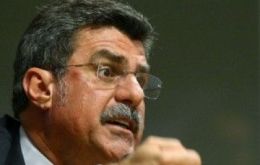
Venezuela is an extremely important factor for the social and economic development of the region and Brazil will insist upon Paraguay on the need for the approval of Venezuela’s incorporation as full member of Mercosur, stressed Senator Romero Juca from the Brazilian ruling coalition.
-
Monday, April 26th 2010 - 21:24 UTC
Uruguay 2010 Soy-Bean Boom Crop Could be Just a One Year Record

Uruguay is currently harvesting what is considered a record crop of soybean the ever expanding oil seed that as in neighbouring countries is taking over land from other exploitations and has made Mercosur the world’s leading producer and exporter.
-
Monday, April 26th 2010 - 01:26 UTC
Paraguay Imposes 30-Day State of Emergency to Combat Insurgent Violence
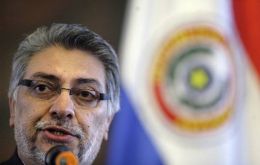
Paraguay has passed a bill imposing a temporary suspension of constitutional rights in five northern and central provinces of the country in a crackdown on violence by a self proclaimed insurgent group, the Paraguayan People’s Army, EPP.
-
Saturday, April 24th 2010 - 01:12 UTC
Peru and Chile Will Lead Latam Expansion in 2011 with 6% Growth Each
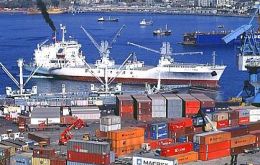
Latest forecasts from the International Monetary Fund (IMF) predict Chile and Peru will lead Latin America’s growth in 2011 with an expansion of 6% each. The IMF released its World Economic Outlook Report on Wednesday, upping Chile’s projected growth from 4 to 4.7%.
-
Wednesday, April 21st 2010 - 03:29 UTC
Brazilian government awards bid to build controversial Amazon dam
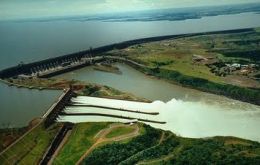
The Brazilian government accepted bids Tuesday to build what would be the world’s third-largest hydroelectric dam in the Amazon. Officials proceeded with the auction immediately after a judge overturned another magistrate’s injunction blocking the tender and revoking the environmental permit for the 11,000 MW Belo Monte complex.
-
Wednesday, April 21st 2010 - 03:16 UTC
Lula da Silva says Brazil must extend a hand to Latinamerica’s poor countries

President Lula da Silva defended his “diversification” diplomacy and said that Brazil must extend “a friendly hand” to all Latinamerican countries. He recalled that some interest groups in Brazil wanted him to strongly confront the governments of Bolivia and Paraguay because of differences over energy policies.
